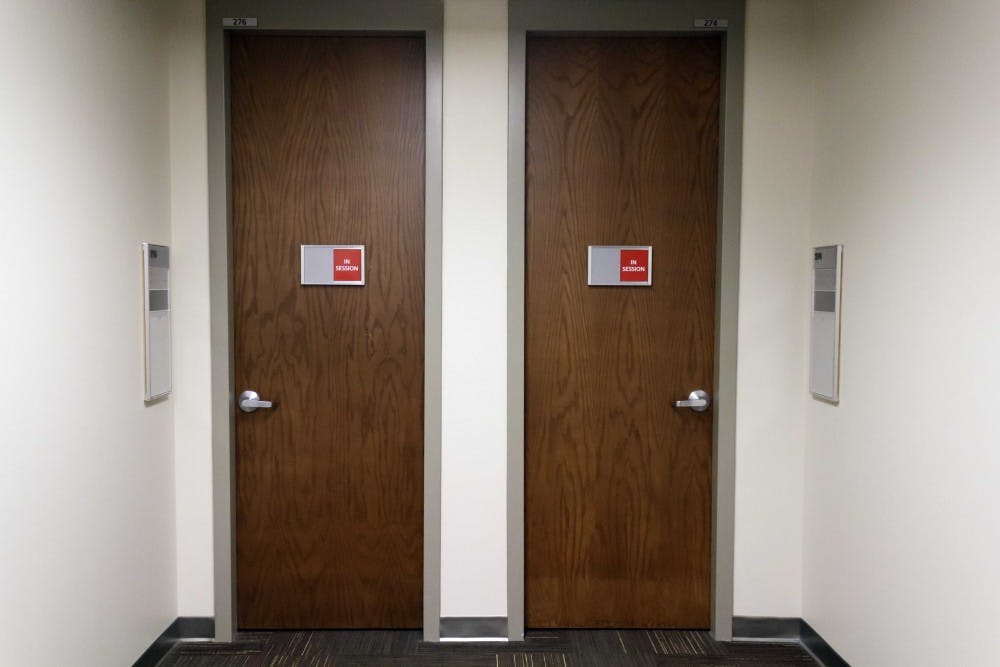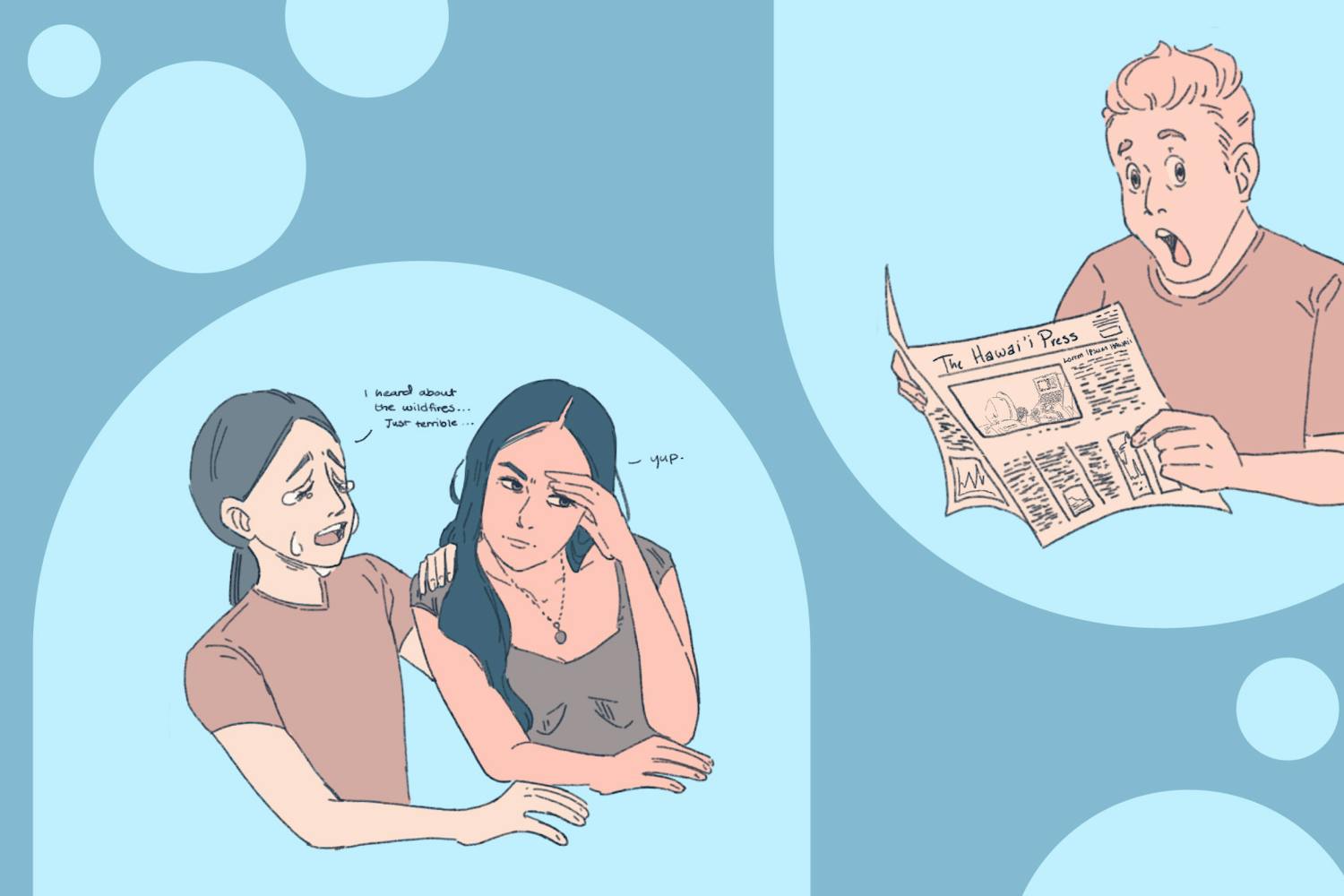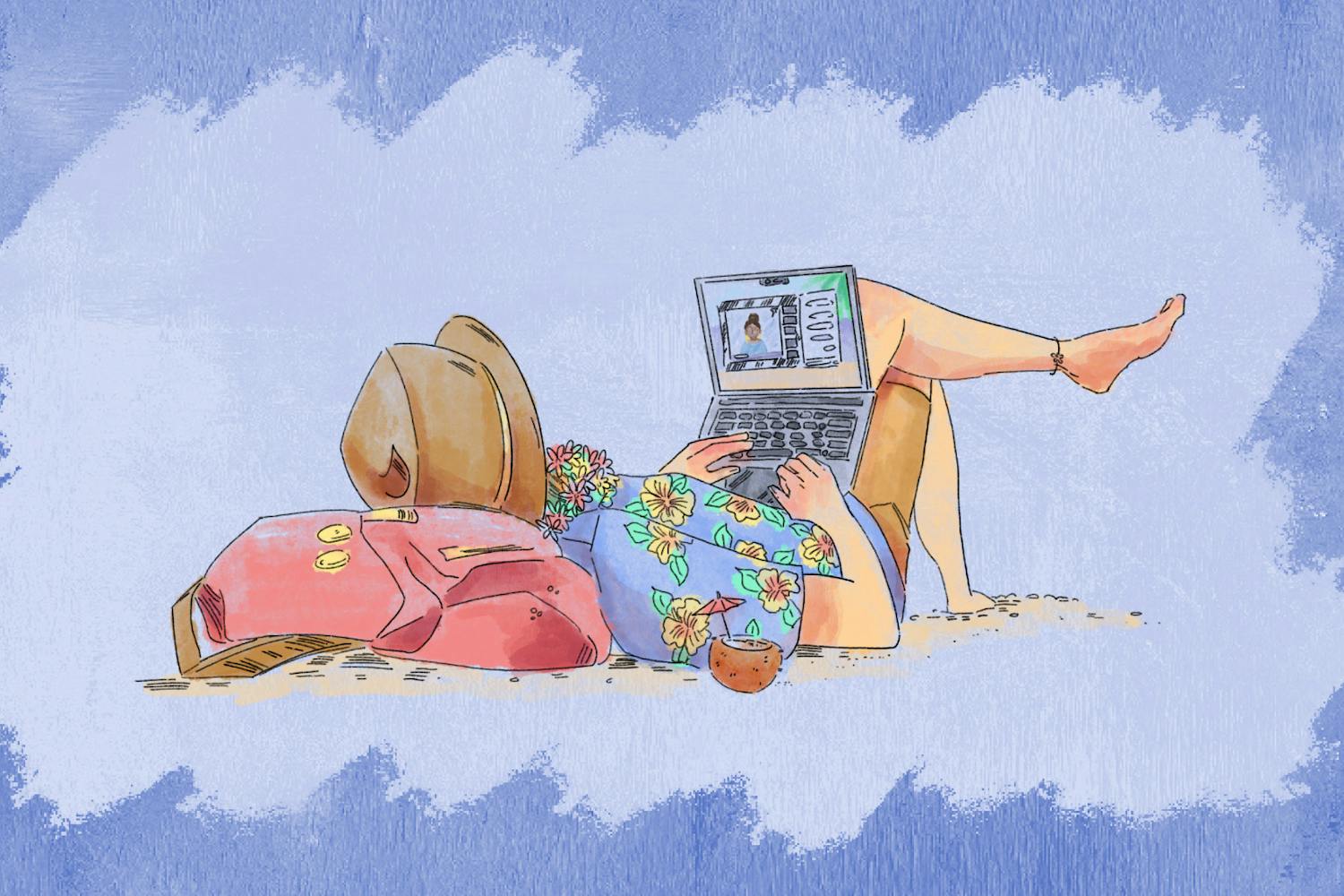 Doors to hoped stress relief. Photo by Pauletta Tohonnie
Doors to hoped stress relief. Photo by Pauletta TohonnieA student will enter into a quiet and dimly lit room.
Light, rhythmic music will be playing, creating a sense of tranquility.
The student will then lie on the table with their knees elevated by a pillow.
A heating blanket will envelop the student in warmth as they lie still.
A doctor will then enter the room, tell the student to relax and begin placing needles.
The needle enters the skin with a virtually painless pinprick. The doctor rotates the needle and a sensation of tingling travels through the nerves, just like when your foot falls asleep.
The theory is that this method can reduce student’s stress levels.
 Acupuncture can be a means of relieving stress. Photo by Pauletta Tohonnie
Acupuncture can be a means of relieving stress. Photo by Pauletta TohonnieArizona State University’s Health and Wellness Center in Tempe is conducting an acupuncture study to see if the Eastern method of healing can curb student’s perception of their stress levels.
Acupuncture is the ancient study of the stimulation of specific points along the skin. Treatment involves using needles to bring relief in re-balancing the yin, yang and chi for the patient.
The yin is the dark and negative energy passage and the yang is the light and catabolic energy passage in the body. The chi is the life force that enlivens a person.
Dr. Stefanie Schroeder is the chief of clinical staff and an acupuncturist at ASU; she is the lead on the study.
Schroeder has been an acupuncturist for 13 years and says this is the first time that a study to quantitatively discover if acupuncture can reduce stress has been attempted. This is also her first study, Schroeder adds.
“The study is really about resilience, about how you react to stress,” Schroeder says.
This study is unique because Schroeder and two others specifically picked the points in which the needles would be placed, she says.
There are 14 vertical meridians, kind of like streets, in the body, which hold the chi or life energy of the person. Of the 14, six tracks focus on the yin and six on the yang while there are two midline tracks that run down the front and the back of the body.
“We selected points which are connected to the heart and spleen, both points are intended to calm the spirit,” Schroeder says.
When the needle is placed in the point to activate it, the acupuncturist will twist the needle to get the chi flowing.
Sometimes after the needle is activated a patient can feel an indescribable sensation, Schroeder says.
“I always say to my patients that a weird feeling is a good feeling,” Schroeder says.
At the beginning of the study participants are asked to fill out a questionnaire, ranking from zero to four a series of questions that ask about how one deals with stress.
The study’s participants, after having received half of the treatments, will fill out the same questionnaire to see if their answers have gone down and then again at the end of their study.
“We don’t expect it to go down to zero, but we are hoping that we see a reduction of 20 to 25 percent,” Schroeder says.
Schroeder says that part of the reason she began this study was because the reduction of stress in students is part of a university-wide initiative.
“The goal of the university is to get students to graduate and too often that doesn’t happen because of stress-related issues,” Schroeder says. “I see a lot of Ph.D students but not so much undergraduates."
“By the time they reach the Ph.D level, they finally realize they need to get help with their stress.”
ASU research nurse Tony Denton helped to organize the acupuncture study.
“The needle doesn’t go in very far,” Denton says. “It goes in just enough to stimulate the energy tracks and to fix what is wrong."
“You don’t feel the needle, but you can sometimes feel the changes in your body.”
The needles don’t cause pain because they are solid needles, as opposed to needles that deliver shots, which are hollow. In solid needles, there is no cutting of the skin.
There have yet to be studies stating that acupuncture works to reduce stress, though there have been studies that conclusively state that it sometimes works to reduce pain, Denton says.
“This study is focused to see how acupuncture works on the perception of stress in individuals,” Denton says.
Many students come in to the counseling centers at ASU complaining of stress-related issues, Vice President and Director of ASU Counseling Services Aaron Krasnow says.
“The specifics of the issue might be different, but what is consistent is that people are feeling distressed,” Krasnow says.
“A healthy diet, good quality sleep, regular exercise, positive social relationships and no alcohol or drug use are all significantly related to low stress levels,” Krasnow says.
When students come in, counselors recommend that they visit Health Services to get checked out, Krasnow says. While the counselors may not recommend acupuncture to the student, the physician they see might.
The study began in May and is expected to last about a year.
“Of course I hope we find that it works and is successful,” Schroeder says. “But even if we don’t, I think the results will still be publishable.”
Reach the reporter at Alexa.Dangelo@asu.edu or via Twitter @andangelo15.




